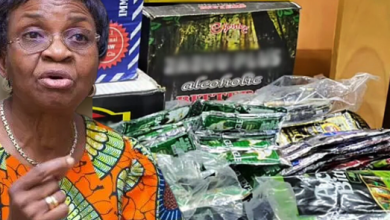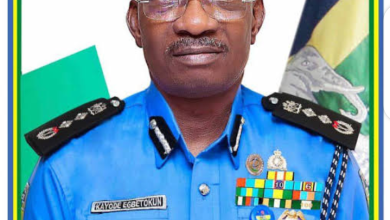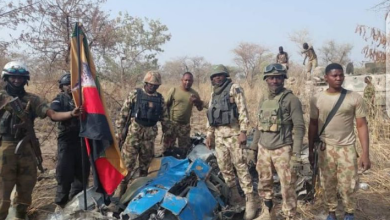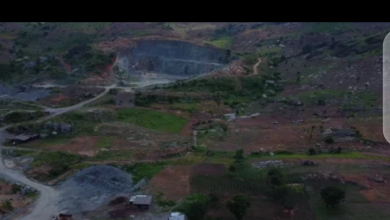I Watched My Children Die: A mother’s testimony from the heart of the Yelwata massacre By David Tari
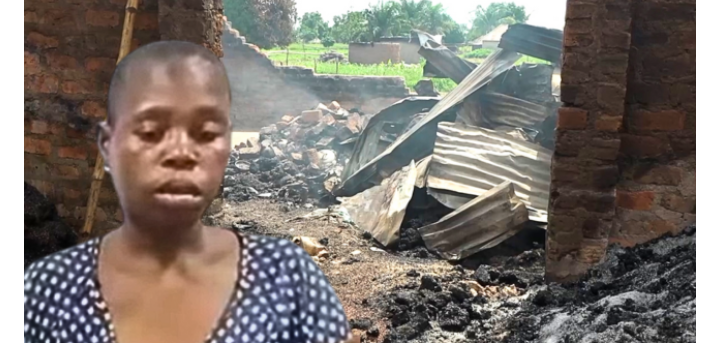
The night was supposed to be quiet.
Hundreds of exhausted families already displaced once. some twice had settled to sleep inside the Yelwata camp in Benue State.
The air inside the crowded shelter was thick with heat and tired breathing.
Mothers tucked their children close. Fathers kept watch. Life in displacement is a fragile attempt at normalcy.
But shortly after 9 p.m., that fragile normalcy snapped.
Msurshima Apeh remembers the exact moment the terror returned.
She was just drifting into sleep when the screams erupted. At first, it sounded distant.
Then the doors rattled, boots slammed against the walls, and gunshots tore through the darkness.
And in minutes, her life would be split into “before” and “after.”
“They locked us inside,” she told the United States Congress, her voice quivering as she testified virtually from Benue State.
“They butchered people with cutlasses. They were also shooting. There was nowhere to run.”
Her words were simple, but behind them lay an unspeakable scene, a camp meant to offer refuge now turned into a slaughterhouse.
Apeh clutched her children as panic erupted around her. She could hear the cries of neighbours, the pounding of the attackers’ footsteps, and the desperate prayers of those already wounded.
“When they finished torturing people, they poured petrol on the building,” she recalled. “And many of us were set ablaze.”
Inside the fire and chaos, she searched for a way out.
She found it, a tree standing just beyond the window. A chance for survival. But climbing it meant leaving her children behind, even for a moment. It was the most impossible choice a mother could face.
“In the course of the attack, I lifted my eyes and saw a tree. I climbed it,” she said softly. “My five children were below, crying.”
From her perch in the branches, she saw what no parent should ever witness.
“In my presence,” she told lawmakers, her voice breaking in the hearing room thousands of miles away, “they were being slaughtered.”
Five children. None spared. And all while their mother watched, powerless, hiding in a tree under the night sky of a country that has failed so many like her.
When the attackers moved on, she fled into the bush, wounded in body, shattered in spirit.
Eventually, rescue workers found her. Other survivors were gathered and relocated to a new camp, another temporary refuge in a life defined by displacement.
But nothing could relocate her grief.
The Yelwata massacre left an estimated 100 to 200 people dead, a single night of violence that displaced more than 3,000 families. Civil rights groups insist the toll may be even higher.
The assailants, security sources say, were armed herdsmen, yet another chapter in the long, deadly conflict consuming Nigeria’s Middle Belt.
President Bola Tinubu condemned the killings and visited survivors in Makurdi.
Police later announced the arrest of 26 suspects. But for Apeh and countless others, the shadow of that night still looms long after the officials have spoken and the headlines have faded.
Apeh’s testimony formed part of a U.S. congressional review of former President Donald Trump’s decision to return Nigeria to the Country of Particular Concern (CPC) list, a designation reserved for nations accused of severe religious persecution.
Her story arrived in Washington as more than a personal tragedy, it became a symbol of a larger crisis.
A reminder of the families who have been buried without justice, the communities erased by conflict, and the quiet graves of children who never had a chance to grow up.
Trump’s decision has ignited diplomatic friction. Nigerian officials insist the country protects religious freedom and rejects any claim of religious intolerance.
But advocates say stories like Apeh’s paint a far more complicated reality—one in which vulnerable communities live at the mercy of armed groups, pleading for protection that seldom arrives.
On the screen before Congress, Apeh was not just a victim. She was a mother who survived horror and found the strength to speak so the world would not forget.
And it carried a simple message:
What happened in Yelwata was not an isolated tragedy. It was a warning.
